Ten Years Gone: Iraq and Afghanistan Vets on What It All Meant
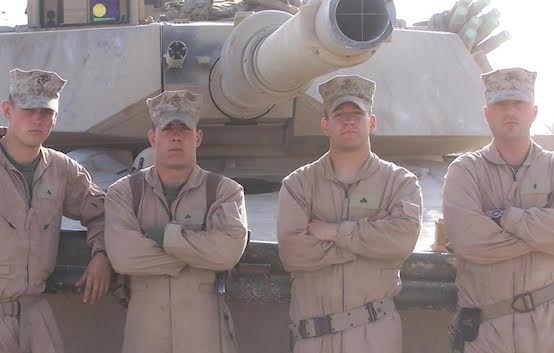
Possibly the most poignant line of the 1984 breakout hit “19” by electronic musician Paul Hardcastle was the one it deliberately drove home with synthesized drumbeat repetition: “In World War II the average age of the combat soldier was 26. In Vietnam he was nineteen…nineteen.”
When this song hit the radio airwaves, much of the Vietnam veteran cohort—those who had seen the worst fighting in that war—had been home for a little more than a decade. They were in their early 30s now—building careers, raising families, and politically active. The war’s horrors and fallout began reemerging in national headlines and sympathetic Hollywood films, along with Agent Orange and PTSD. A page had turned, too, in the national consciousness. Americans were finally beginning to separate their anger at the government from the young men who fought its war. The mantra became internalized: never again.
“Never” did not mean never, of course, and 20 years after Hardcastle’s cult hit, Washington sent more than two million American men and women into wars of choice in Afghanistan and Iraq, with the heaviest fighting occurring between 2003 and 2010. Many of those veterans are now more than a decade home—building careers, raising families, politically active. On this Veterans Day, TAC asked five of its regular writers to tell us in their words how they’ve come to terms with their own service and what they think of American society as the wars continue quietly, indefinitely, and off the national radar.
♦♦♦
Daniel Sjursen, U.S. Army officer (retired), served combat tours in Baghdad (2006-07) and Kandahar (2011-12)
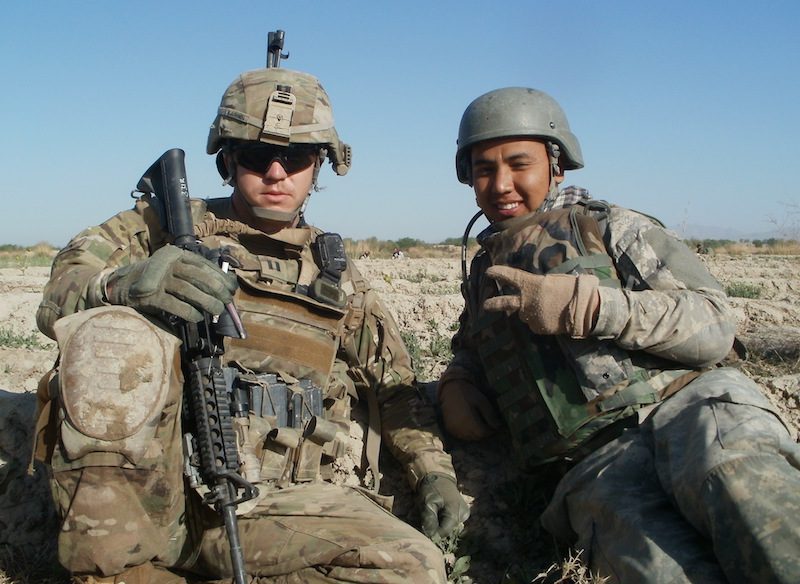
The 11th minute of the 11th hour of the 11th day of the 11th month, 1918. The guns fell silent along the trench lines of Northern France. Some nine million men had already died in that hopelessly absurd and unnecessary war—yet on that day, finally, an armistice was called. In the decades that followed, all the combatant nations celebrated November 11 as Armistice Day. The beauty of the old holiday was this: it celebrated peace, not war; it did not seek to glorify the fighting men per se, but to extol the merits of ending an irrational war. It was thought, back in those gloriously naive days, that perhaps the great wars were at last behind us.
Of course they weren’t. The First World War led, soon enough, to the second, and, for Americans, on to Korea, Vietnam, and the Middle East. Recognizing the obsolescence of the old holiday, in 1954, President Dwight Eisenhower changed its name to Veterans Day. Though a realist at heart, I, as a veteran of a new generation of wars, still lament the sentiment and mourn the idealism of Armistice Day—if for no reason other than that my wars, the conflicts of the 21st century, may never end.
One hundred years after the guns fell silent on the Western Front, Veterans Day has morphed into yet another vacuous opportunity for the over-adulation of millions of veterans, without the least bit of actual contemplation on the nature of the wars they’ve been asked to fight. Nowadays, every NFL Sunday is little more than an excessive display of militarism, replete with fighter jets a flying and soldiers a marching—all surrounded by a stadium sized American flag. Observing these regular martial displays, one wonders if we even need a separate holiday for veterans anymore.
Yet there remains a national cognitive dissonance about the post-9/11 wars. Americans celebrate the soldiers, but ignore the wars they fight. During the midterm elections this past Tuesday, foreign policy was hardly on the ballot. And why should it be? The media rarely dares speak the word “Afghanistan.” There is no longer conscription. Taxes aren’t even raised to pay for these failing wars.
Ultimately, nothing is asked of the American public. Apathy is the norm for a post-2001 generation for whom “Call of Duty” video games are the closest thing to war most will ever get. And yet, disturbingly, some one percent of those young men and women born after 9/11 will enlist this coming year and inevitably fight in Afghanistan.
That war is 17 years old and running—the longest in American history, and it’s failing. So is the entire American military enterprise in the greater Middle East. All the while we’ve permanently damaged millions of our brave troopers. Some 22 veterans commit suicide each day and hundreds of thousands more suffer from physical and mental wounds. Still, it remains a dirty little secret that these wars are, and always were, unwinnable.
The country has asked the impossible of its vets, then practically ignored them, and now implores us to briefly pause and bestow paltry honors on them. This veteran, for one, is sick of the whole vapid charade. Those who served with and under me deserve better. True citizens in an ostensible republic should be engaged in what its military does in their name.
Sure, I am grateful, in a certain sense, to be thanked for my service. But in the long lost spirit of Armistice Day, I’d like to remind the American people of one salient truth: the best way to honor veterans is to create fewer of us.
♦♦♦
Dan Grazier, Captain, U.S. Marines, deployed to Fallujah, Iraq (April to October 2007) and then to Helmand Province, Afghanistan (May to September 2013)
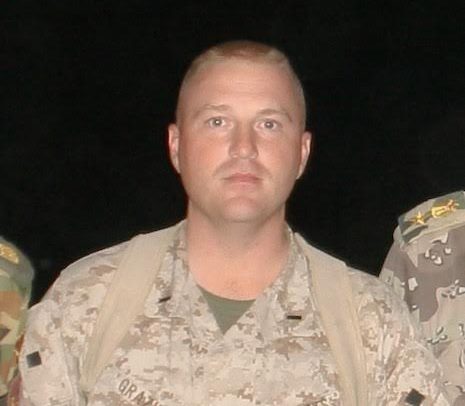
My thoughts about war have evolved a great deal over the years. I will be the first to admit that I once viewed it as a grand adventure. Such sentiments quickly fell away as I confronted its realities. I must hasten to add that my first exposure to war, commanding a tank platoon in Fallujah in the summer of 2007, was mild compared to what many others experienced. I deployed believing that I was a part of a noble and honorable effort, working within the national interest. For the first few weeks, I focused so much on just trying to keep my Marines alive that I did not take much time to reflect on the bigger picture of why we were there. It slowly dawned on me that we were really not accomplishing much and that no one could provide a satisfying explanation for our continued presence. The waste I witnessed in terms of lives and property and the disruption to normal life patterns, both Iraqi and American, highlighted the futility of the entire enterprise.
Looking back after more than a decade, it is hard to convince even myself that my platoon helped achieve any lasting contribution in a strategic sense. I do believe there are many Marines who came home uninjured because our tanks were there to protect them. For that, I am glad we went and I do not today consider our time and efforts wasted. Protecting our fellow Marines was the best thing we could have done.
War is an unfortunate part of the human condition. Wishing it away would only court disaster. For that reason, we must take the appropriate steps to prepare for it but we should also take caution not to fall prey to the law of the instrument. Just because we spend fortunes building a military doesn’t justify its use in all situations.
Arguments can be made either way as to whether or not we should have invaded any of these places in the first place. I am confident we should not have been sending more people overseas—not when I went to Iraq in 2007 or Afghanistan in 2013, and certainly not today.
♦♦♦
Daniel Davis, U.S. Army officer (retired), fought in armor (1991) and military training missions (2009) in Iraq, and liaison missions (2005) and counterinsurgency ops (2011) in Afghanistan.
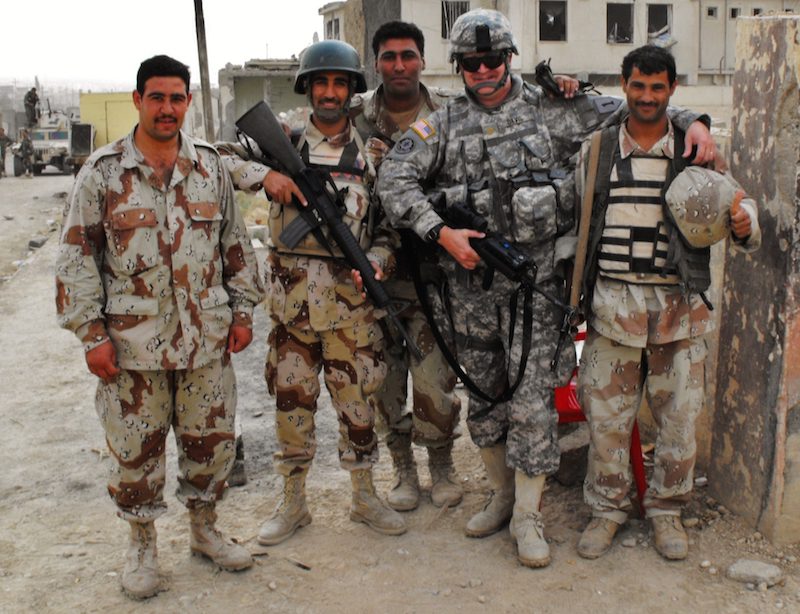
On the eve of the 2018 midterm elections, Gallup polls published a list of the top 12 issues that would be on the minds of voters as they entered the voting booth on November 6. What didn’t make the cut: ongoing wars and combat operations in Afghanistan, Pakistan, Iraq, Syria, Yemen, Somalia, Niger, and dozens of other locations in Africa. Tens of thousands of American men and women are deployed in war zones around the world, risking their lives, yet they’re virtually invisible to the American public.
This is a tragedy that should be immediately corrected. The men and women who devote their lives to the defense of our republic should not be held in such low regard. Their lives should not be frittered away in far-flung locations across the globe by our political leaders on missions that have little (usually nothing) to do with our security.
I first saw combat at the Battle of 73 Easting in 1991 during Desert Storm. That was the war that President George H.W. Bush said finally “kicked the Vietnam War syndrome” and brought honor back to the U.S. military. We went on a mission halfway around the world, President Bush said on another occasion, “to do what is moral and just and right. And we fought hard, and—with others—we won the war. And we lifted the yoke of aggression and tyranny from a small country that many Americans had never even heard of, and we ask nothing in return. We’re coming home now proud, confident, heads high.”
At the time, that’s exactly how I felt: proud and confident. But as the years went by, I discovered how little that big war had impacted the course of events in the Middle East. A decade later, Saddam Hussein was still in power, violence still prevailed throughout the region as it had prior to our arrival, and America didn’t feel any safer. It would soon get worse.
I’ll admit, I initially bought—hook, line, and sinker—the justification for the Iraq war in 2003 that President George W. Bush laid out and Secretary of State Colin Powell infamously presented at a UN Security Council meeting. Saddam Hussein, they both said, was a menace to the region and a direct threat to U.S. security.
The rationale was soon exposed as having been fraudulent. Yet American troops would still spend eight years there, fighting a pointless war that couldn’t be won militarily (which I observed firsthand during my deployment on the Iran-Iraq border in 2009), suffering tens of thousands of casualties and hundreds of thousands of cases of post-traumatic stress disorder. Many thousands more have since taken their own lives.
My second combat deployment to Afghanistan in 2011 deepened my sense of concern. I went on numerous mounted and dismounted combat patrols throughout the country and witnessed the stark difference between what our senior uniformed and civilian leaders were telling the public and what the on-the-ground reality was. We were again fighting a war that couldn’t be won militarily, losing American lives in operations that did not increase the security of our country.
Now, three years after my retirement, I continue to lament the profound cost of routinely—and now perpetually—fighting wars that cannot be won for purposes that have nothing to do with the actual security of our country. If there are threats that necessitate the sacrifice of our sons and daughters, then the Congress and the people of this country owe them the respect of publicly supporting the war. But above all, they should not send our troops to die in pointless anonymity.
♦♦♦
Gil Barndollar, infantry officer, U.S. Marines, deployed twice to Afghanistan, as a light armored reconnaissance platoon commander (2011-12) and as a combat advisor with the Georgian Army (2013-14)
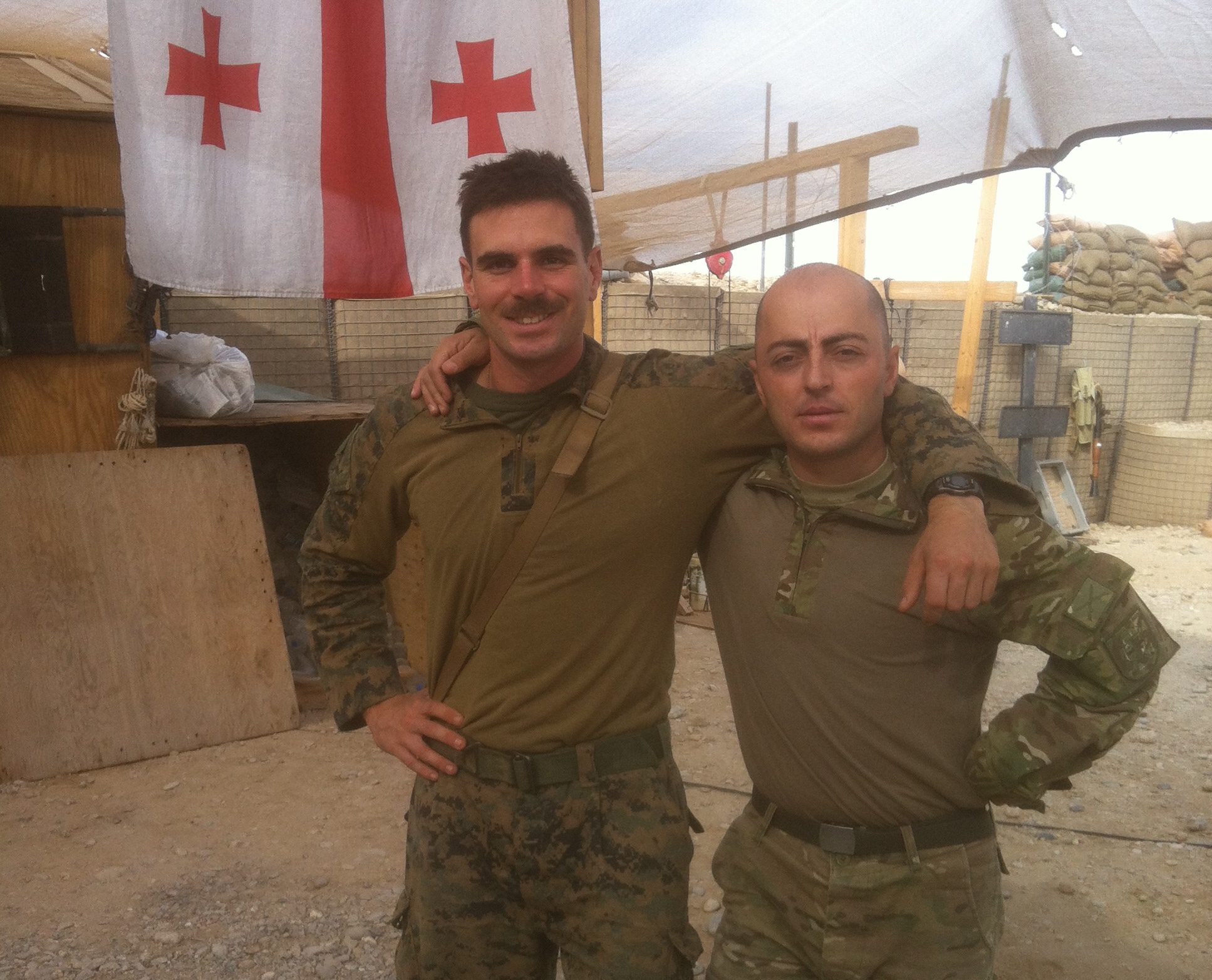
This Veterans Day, a casual observer could almost be forgiven for thinking America is at peace. Almost. Few Americans know a service member who is actually in harm’s way, the very real perils of training aside. Our shadow wars and drone strikes continue but American cavalrymen are more likely to be near Kaliningrad than Kandahar these days.
The majority of veterans of our post-9/11 wars, however, are not Americans, and the vast majority of casualties were definitely not Americans. The Afghans and Iraqis who fought alongside us for years and even decades remain at war. Secretary of Defense James Mattis revealed last week that “the Afghan lads” suffered over 1,000 dead and wounded in August and September.
Many, probably most, American servicemen didn’t like or trust our foreign partners in the greater Middle East. They had their own cultures and their own agendas, which seldom matched ours. Insider attacks in Afghanistan continue, a depressing drip in a stalemated war. We, the overwhelming majority of us, never understood them, and we have suffered for it. As Kipling’s famous epitaph goes: “A Fool lies here who tried to hustle the East.”
These are their wars and have been since the initial shooting stopped. Most of us who went overseas to conduct nation-building-in-all-but-name were told we would only win by, with, and through the local security forces. The reality seldom matched the rhetoric, and an “Afghan face on operations” was often literally just a couple of much browner faces on a patrol. If not nameless, they were the twentieth Muhammad you’d yelled at that month. They might earn a nickname, “Birdman” or “John Wayne,” if they happened to stick around the patrol base long enough. When we left after seven months, or even 15, their war continued unabated.
Thankfully, we did get tens of thousands of interpreters out, though we have often failed to fulfill even this basic moral duty. But the soldiers and policemen remain behind, most still fighting. You won’t find them driving your Uber in Arlington or Palo Alto.
America will spend this Veterans Day as it has the last few. There will be speeches, some heartfelt, many by the numbers. Any guilt in the national subconscious will be assuaged with an avalanche of veterans’ discounts and suitable expressions of outrage at that guy from Saturday Night Live. Washington won’t get its promised jingoistic grand pageant but many cities and towns will have more subdued and genuine ceremonies.
Veterans, though, should spare a prayer for their former comrades-in-arms in Iraq, Afghanistan, and a half dozen lesser campaigns. There will be few parades for those men. Many are still being consumed by the fires we halfheartedly tend to.
Scott Beauchamp, U.S. Army Infantry, deployed to Baghdad (September 2006 t0 October 2007), and then in Northern Diyala Province (November 2008 to October 2009)
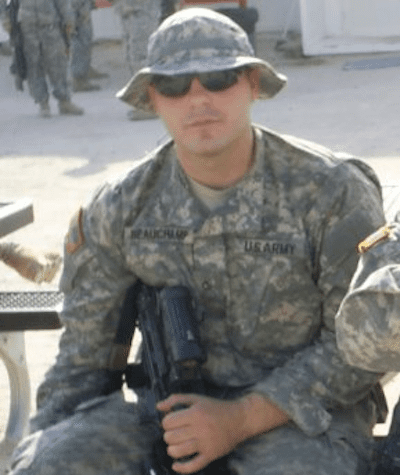
As Americans, amnesia is in our cultural DNA. Emerson himself, the luminous sage of unfettered positivity, wrote, “No facts are to me sacred; none are profane; I simply experiment, an endless seeker, with no past at my back.”
It could be our national motto. Nothing really seems to stick to us or stand in the way of what Justice Anthony Kennedy called our right to “define our own conception of existence.” And according to this twisted logic, we should forget the ongoing war (and our experiences in Iraq) if it serves our unbounded appetite for self-creation.
We’re too busy trying to transcend the hard lessons of history, either using it as a convenient and simplified political prop or forgetting it altogether, to actually learn from it. As Vox founder and journalist Ezra Klein recently demonstrated, even those who define themselves as sensible moderate voices in a howling wilderness of ideology can’t be bothered to remember the facts of our shared biography.
But for those of us who were there, who actually served and continue to serve, these memories still bleed. We’re forced to learn the hard lessons on everyone else’s behalf. I consider it both a responsibility and gift.
The views in this article are those of the authors, expressed in an unofficial capacity, and do not reflect the official policy or position of the Department of the Army, the Department of Defense, or the U.S. government.
[youtube https://www.youtube.com/watch?v=hRJFvtvTGEk&w=560&h=315]
Kelley Beaucar Vlahos is the executive editor at TAC.
Don’t miss Grazier, Barndollar, and Davis discussing the forever war, the military industrial complex, and military reform at our fifth annual foreign policy conference on November 15 in Washington, D.C. Full schedule and free registration here.
Comments